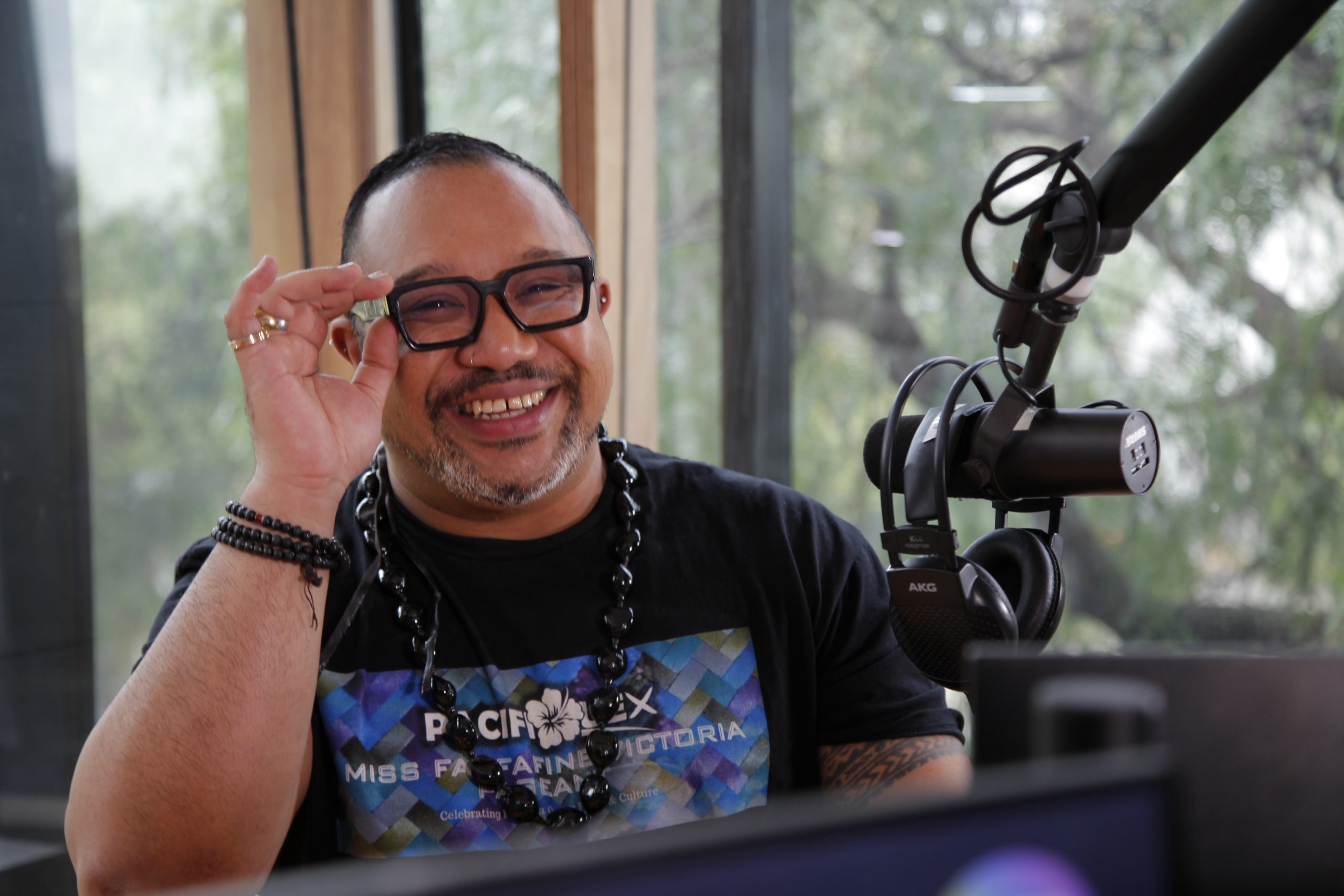What is Mental Health?
There are many ways to understand mental health and wellbeing.
In general, when people talk about mental health and wellbeing they are talking about how you think, feel, interact with others, enjoy and take part in life.
As you go through life, you will experience ups and downs and face different challenges. This includes feeling sad, angry, worried and even overwhelmed at times.
Sometimes however, difficult thoughts and feelings last a long time. They can even start to impact your day-to-day life, and make it hard to do the things you would usually do.
You might start to notice changes in how you think, feel and get along with others, as well as physical symptoms like changes in your sleep or eating habits.
The time and place you grew up and your experiences can shape what you think about mental health and wellbeing, as well as what you do when you feel stressed or unwell. This includes whether or not you seek help.
If you are not feeling well, there is no shame in asking for help. In fact, seeking help takes courage and can make a big difference in your life and the lives of those around you.
There are many things you can learn about and do if you want to improve the mental health and wellbeing of yourself, your family or your community.
There is also support available to anyone who needs it, to help work through any mental health or wellbeing challenges you may be experiencing.
If you need some help with your mental health
If you want to connect with community
If you want to hear everyday people’s stories
Remember, if you are currently in crisis please call 000.

For People of Colour, Culture, or Faith
People from marginalised backgrounds including people of colour, culture, faith – including migrants and forcibly displaced people can experience unique challenges around their mental health.
People from diverse cultural backgrounds may experience racism or discrimination in the general community and discrimination in the workplace or school.
For people who are from the LGBTIQA+ community, these issues may be further impacted by real or perceived stigma and discrimination about their identity, and the people they love. These can be experiences from here in Australia, or from past traumas from lives overseas. Both are real and complex, and you should not feel any shame in talking to someone about these issues.
These can all be exacerbated by systemic issues such as difficulty accessing services for those without Medicare, culturally unsafe clinics or services, or experiences of discrimination from service providers.
If you need support, please contact one of the service providers or services listed on this website, or in your own community networks where you feel safe and supported.
If you would like to contribute your story, please get in touch!

Seeking Support
Seeing your doctor and other health professionals
Doctors are there to help look after the health of you and your family, and this includes your mental health and wellbeing. Your doctor is a good place to start if you or a loved one have been experiencing issues with your mental health and wellbeing.
Your doctor can talk through what has been happening with you, and what might help. You can let your doctor know if you have preferences about what you do and don’t want to do, or if you are unsure about anything and would like more information. You can also bring someone with you such as a family member, for support
Your doctor might connect you to another health professional for further help, such as a psychiatrist, psychologist, social worker, group program or others. Let your doctor know if you would prefer to see someone who speaks your language, or who is male or female. You can also ask for assistance to book appointments or fill in forms if you need it.
When you are booking an appointment with your doctor or another health professional, remember to ask for an interpreter if you need one – it will make it easier for you both to understand one another and work out what to do next.


At home and in the community
There are also many things you can do at home and in the community to improve your mental health and wellbeing, as well as work through any challenges or issues you may be experiencing.
Talking about what has been happening with someone you trust, such as a close family member or friend, a teacher or a religious or community leader, can help you to better understand what is going on and how you feel about it. This can help reduce your stress as well as give you hope and another perspective.
Doing things that bring you meaning and happiness are important both when you feel well and when you might be struggling. Different things work for different people – some people enjoy music, cooking, sports, art, friends, faith, community activities… It is about what is most important to you and what you enjoy.
Our bodies and minds are connected. Taking care of your physical health alongside your mental health helps to improve your overall wellbeing. Developing healthy eating, sleeping and exercise habits is a good place to start.
Learning more about mental health and wellbeing can also help you improve your mental health and wellbeing over time –find out more using the resources below.
If you have tried doing things at home and in the community, and are still feeling stressed and unwell, it might be time to seek help from someone else such as your doctor.
Depression affects how you feel about yourself. Depression can be a feeling of sadness or hopelessness. It can make life more difficult to manage from day to day.
What is depression?
The symptoms of depression and the treatments provided are not all the same. There is no one type or cause of depression. Everybody’s circumstances, history and culture will be different.
- You might lose interest in things you usually enjoy.
- You may lack energy, have trouble sleeping or sleep more than usual.
- You may find it difficult to concentrate, and find it hard to get things done at work, or school.
- You may be using more alcohol or drugs like sedatives.
- You may feel overwhelmed, irritable, disappointed, sad, or guilty.
- Physically, you might feel tired, with low energy, sick or run down. You might experience headaches, pain, a loss or change of appetite, or change in your weight.
Can you treat depression?
Psychological therapies, such as Cognitive Behavioural Therapy (CBT), are aimed at changing patterns of thinking, behaviours, and beliefs that may cause depression. In some cases, depression may be treated with medication such as anti-depressants.
Where to go for help
- Your doctor / general practitioner.
- Your community health centre.
- Your community mental health centre.
What is anxiety?
Anxiety is a term used to describe a normal feeling people experience when faced with threat, danger, or when stressed. When people become anxious, they typically feel upset, uncomfortable, and tense.
Feelings of anxiety can be a result of life experiences, such as job loss, relationship breakdown, serious illness, major accident, or the death of someone close. Feeling anxious in these situations is appropriate and usually we feel anxious for only a limited time.
What causes anxiety?
Anxiety disorders are not just one illness but a group of illnesses characterised by persistent feelings of high anxiety, and extreme discomfort and tension.
People are likely to be diagnosed with an anxiety disorder when their level of anxiety becomes so extreme that it significantly interferes with their daily life and stops them doing what they want to do.
Anxiety disorders often come out of the blue, with no apparent reason. They are generally accompanied by intense physical sensations, such as breathlessness and palpitations. Other symptoms can include sweating, trembling, feelings of choking, nausea, abdominal distress, dizziness, pins and needles, feelings of losing control and/or feelings of impending doom.
Anxiety disorders affect the way a person thinks, feels, and behaves and, if not treated, can cause considerable distress and disruption to the person’s life. Fortunately, treatment of anxiety is usually very effective.
Can you treat anxiety?
Psychological therapies, such as Cognitive Behavioural Therapy (CBT), are aimed at changing patterns of thinking, behaviours, and beliefs that may trigger anxiety. Therapy may also involve gradually exposing a person to situations that trigger their anxiety (desensitisation). In some cases, anxiety may be treated with medication such as anti-depressant or anti-anxiety medications.
Where to go for help
- Your general practitioner.
- Your community health centre.
- Your community mental health centre.
---
TYPES OF ANXIETY
People with this disorder worry constantly and irrationally about harm affecting themselves or their loved ones, and the worry is accompanied by a feeling of constant apprehension.
People with this disorder experience extreme panic attacks in situations where most people would not be afraid.
These might include fear of heights, water, dogs, closed spaces, snakes, or spiders. Someone with a specific phobia is fine when the feared object is not present. However, when faced with the feared object or situation, they can become highly anxious and experience a panic attack.
This anxiety disorder involves constant unwanted thoughts, and often results in the performance of elaborate rituals in an attempt to control or banish the persistent thoughts. The rituals are usually time consuming and seriously interfere with everyday life. For example, people may be constantly driven to wash their hands, recheck that the door is locked or the oven is turned off, or follow rigid rules of order.
People who have experienced major trauma, such as war, torture, vehicle accident, fire, or personal violence can continue to feel terror long after the event is over. Not everyone who experiences trauma develops post traumatic stress disorder (PTSD).





